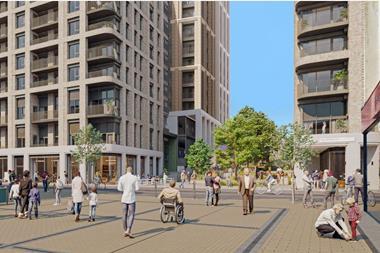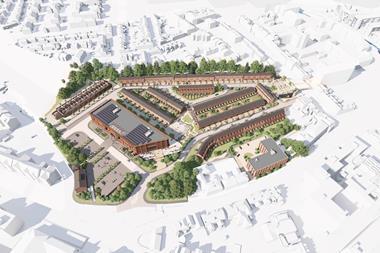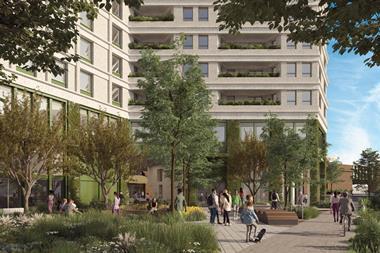Affordable housing transcends the confines of mere shelter; it is the cornerstone of a nation’s economic prosperity. Addressing this fundamental human need isn’t just a social obligation; it’s an economic imperative that sparks growth, creates jobs and nurtures communities.

A key factor often overlooked is the wide range of affordable housing choices. These options, from affordable rent to shared ownership, help unlock economic growth. Empowering and providing everyone with a stable home and the opportunity to own a bit of something gives people an opportunity to build their lives and, potentially, something they can pass on.
Housing holds paramount importance, not just on a national scale but within the very fabric of individual lives. It is the embodiment of security, shaping the future and prosperity of families. Having options for individuals to access as their circumstances allow is important as it enables people to feel that they have agency. Products such as shared ownership and rent to buy fill the middle ground for those who do not qualify for social rent but need support to achieve their aspirations.
Being denied a means to fulfil a reasonable aspiration of having a home is corrosive and at scale affects society and individuals. Whether or not residents fully own their homes, the opportunity to have a stake is a powerful concept. It offers not only a sense of protection but also a valuable asset to pass on to future generations.
People invest more than just money in their homes; it’s an emotional investment – a canvas on which they paint their aspirations and dreams. Homes represent not just shelter but a space where one’s image is created. The emotive nature of this topic is profoundly evident.
Our sector isn’t just about buildings; it’s about stimulating economic activity in a multitude of ways. The sector invests in construction and development of housing projects, creating a significant demand for labour, materials and services, which boosts the wider construction sector, creating jobs and stimulating economic activity. Investments and funding from various sources including national government grants and private investors also lead to an influx of capital, which fuels further growth.
The injection of investment capital also serves to drive other wider social benefits as much of it comes from pension funds thereby creating a positive cycle of good beyond the homes that it has built.
People invest more than just money in their homes; it’s an emotional investment
A thriving housing sector cultivates a wide array of employment prospects. The construction and management of affordable housing projects generate a plethora of job opportunities, particularly within the construction sector. Social housing providers are in the forefront of improving the efficiency of the housing stock and this level of demand underpins the development of ‘green’ businesses, which are creating new employment opportunities.
Affordable housing has far-reaching impacts beyond the physical structures. It nourishes the surrounding business ecosystem. By sourcing goods and services locally, small businesses are bolstered, amplifying social value. Community support extends to local agencies like the Citizens Advice Service (CAS), ensuring a symbiotic relationship between housing associations and the wider community.
Our collaboration with local authorities encompasses a spectrum of contributions, ranging from economic support through S106 commitments on developments to establishing robust partnerships. A fundamental aspect of this collaboration is assisting local authorities in addressing the pressing housing needs within their areas. Temporary accommodation often strains their budgets significantly.
Sector collaboration also extends to broader development partnerships. Through funding initiatives, we’ve supported the employment of domestic violence support workers, creating invaluable resources that serve both residents and the wider community.
Affordable housing is a crucial step toward financial stability and progress. People’s needs change over time and active promotion of mutual exchanges enables residents to swap homes with other social housing residents, ensuring they reside in the most suitable environments for their circumstances. These swaps increase a sense of agency – of being able to make choices and influence outcomes as well as getting people to the place they want to be.
Envision a world devoid of affordable housing – a society lacking in vital stability and opportunities. While there may not be an abundance, what there is is immensely powerful. This ‘some’ has the transformative ability to enhance lives, invigorate economies and elevate communities. It represents an investment in a shared future – a future where safe, affordable housing is a fundamental right, forming the solid foundation of a flourishing and prosperous society.
So, despite all of the current challenges, let’s not lose sight of this potential and invest wholeheartedly in a brighter tomorrow for every individual.
Elspeth Mackenzie is chief executive at Thrive Homes





























No comments yet